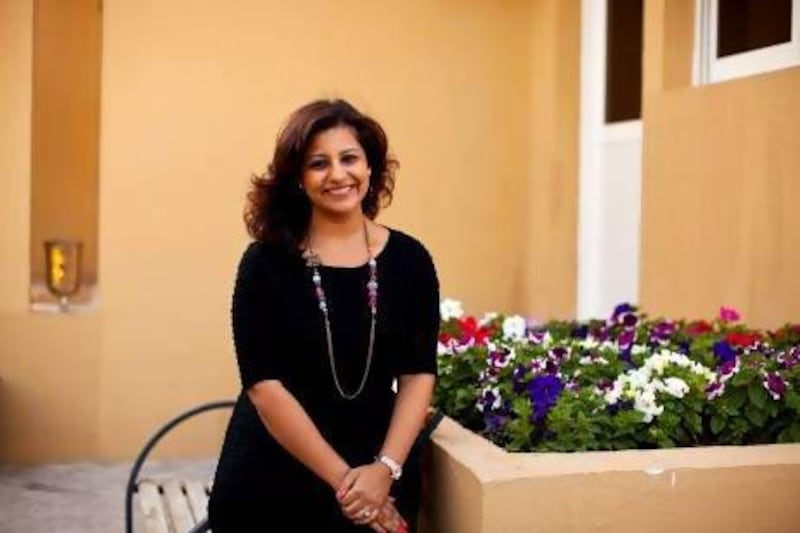Looking to earn a better salary or get that elusive promotion? Start with your self-confidence. Research shows that the key to doing well at work and in life lies in how confident we are. Andrea Anastasiou reports
A recent study by researchers at the University of Melbourne found that those who believed themselves to be highly confident throughout different stages of their lives received promotions faster and enjoyed higher salaries. “The study examines self-reported confidence at elementary school, secondary school, university and at present,” explains the lead author of the study Dr Reza Hasmath. “The findings suggest that those who self-report confidence at an early stage of their life course, and consistently throughout these phases, earn a higher salary and a faster rate of promotion.”
It sounds simple enough – if we are to be successful at what we do, what we need are big dollops of confidence. However, is self-confidence something we are born with or can it be learnt at any point in our lives?
Researchers have long focused on the question of whether traits such as self-confidence are shaped by parenting and environment or by genetics. The Canadian psychologist Albert Bandura, for example, argued decades ago that a child’s first self-efficacy experiences come from the family, so he believed that one’s self-confidence develops according to upbringing and environment. However, a 2009 study led by Corina Greven at King’s College London supports the flip side of this argument. After studying more than 3,700 pairs of twins, both fraternal and identical, the researchers found that a child’s self-confidence is heavily influenced by heredity.
“The nature versus nurture debate is very old,” says Dr Hasmath. “While I am not an expert on potential biological influences, nurturing can increase one’s confidence. Put differently, if an individual is praised and provided with positive reinforcement at an early age, they have a stronger tendency to have higher self-reported confidence levels.”
So, if self-confidence can in fact be learnt, how do you improve it years on? According to Dr Saliha Afridi, a clinical psychologist and director of The LightHouse Arabia in Dubai, confidence is developed through experience – so, the more you challenge yourself out of your comfort zone, the more confident you will feel. “Some people feel very safe in their comfort zone and cannot tolerate the anxiety of change or trying new or difficult things. There are others who push themselves too hard and too fast and enter the ‘terror’ zone, which results in them feeling paralysed and incompetent to cope with their situation. The middle way is to push yourself appropriately out of your comfort zone and into the growth zone. This is where your confidence will develop.”
There are a number of workshops available in Dubai that focus on increasing self-esteem, which reflects how you feel about yourself overall. Since self-confidence is based on how you feel about your abilities and can vary according to the situation, it grows as self-esteem improves.
One such workshop is the self-empowerment support group for women at the Human Relations Institute, Dubai. Led by the occupational therapist Femida Hirji, the sessions run for six to eight weeks at a time and focus on helping women gain self-confidence through goal setting and sharing experiences. “The good news is that it is possible to build confidence and one of the ways in which we do this is by achieving things,” explains Hirji. “This is done in small steps. If you feel like you’ve achieved something, you’re building on your satisfaction and fulfilment. When you build on these, confidence grows and that is what we try to achieve in these groups.”
Dr Saliha Afridi shares ideas on how to increase self-confidence:
- Know yourself. You have to know your strengths, your weaknesses and your tendencies. Ask the five closest people to you, ask your mentor, or sit with an objective party, such as a life coach or psychologist, who will give you honest feedback.
- Set some appropriately challenging goals for yourself. For example, "I want to learn how to be confident in the kitchen and cook basic meals" – not "become a Michelin star chef".
- Identify your anxieties and fears. They are your growth edges. Using the previous point as an example, you should make a list such as: I don't know the basics of cookery, I don't know the theory, I will mess it up and it will taste bad or I don't know how to select the right ingredients.
- Identify what you need to overcome these fears. This could be a new skill, a support network, a coach, a teacher or a psychologist. For example: I need a good teacher who will take me from the very basics like shopping for the ingredients to how to prepare basic meals.
- Just do it, and then reframe "mistakes" when they happen. See them as a lesson learnt on how not to do things, rather than as a failure.
Looking to increase your self-confidence? Then take a look at these self-empowerment groups:
- Self-Empowerment Through Self-Awareness workshop at LifeWorks Counselling and Development in Dubai. Call 04 394 2464 or visit www.counsellingdubai.com for more details.
- I’m Every Woman, a self-empowerment support group for women at the Human Relations Institute in Dubai. Call 04 365 8498 for more details.





